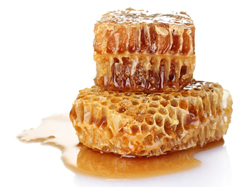Food Allergies

Introducing new foods to your baby can be scary when you start to think of all the possible reactions they can have. Hopefully the following information will make it all a little bit easier. Remember that mealtimes should be nutritious and fun!
How to Spot a Potential Allergic Reaction
There are several things you might note that may indicate baby has a potential allergic reaction or intolerance to a food. Remember, an intolerance to a food is not the same as an allergy to a food!
1. Sudden, loose diarrhea stools and/or vomiting
2. Sudden rashes on the skin and bottom
3. Irritability and gassiness after a new food/meal
4. Breathing or other respiratory troubles after a new food/meal
The “4 Day Wait Rule”
It is very important to follow the “four day wait” rule when introducing your baby to new solid foods. When you introduce a new food over the course of several days, you are better able to determine exactly how your baby is reacting to that food. This is most important if you and/or your family members have a history of food allergies. Following the four day wait rule and introducing new foods one at a time will also enable you to easily begin an “elimination diet”. If you suspect your infant has had an adverse reaction to a new food, you will have just a few foods to look to as the culprit. Please note that some of the foods that appear on the list of “Least Allergenic” should not be introduced until a certain age.
While these foods may not be allergy causing, there may be other issues that make that food item inappropriate to give to an infant prior to a specific age. An example of this is honey; honey is not a known allergen however it may contain spores that are botulism-inducing. Honey should not be given to an infant prior to one year of age. Introduce new foods during the morning or early afternoon. This will enable you to deal with any adverse reactions when your pediatrician is in the office. Should an adverse reaction occur during the morning/early afternoon, it will cause the least amount of disruption in baby’s fragile routine. Further, you should always introduce new foods after a nursing or bottle feeding. Your baby still receives his main source of nutrition from either breast milk or formula up to the one year old mark – do not let solids interfere with liquid intake!
Least Allergenic Foods
1. Apples
2. Apricots
3. Asparagus
4. Avocados
5. Barley
6. Beets
7. Broccoli
8. Carrots
9. Cauliflower
10. Chicken
11. Cranberries
12. Dates
13. Grapes
14. Honey
15. Lamb
16. Lettuce
17. Mangoes
18. Oats
19. Papayas
20. Peaches
21. Pears
22. Poi
23. Raisins
24. Rice
25. Rye
26. Safflower Oil
27. Salmon
28. Squash
29. Sunflower Oil
30. Sweet Potatoes
31. Turkey
32. Veal
Most Allergenic Foods
1. Berries
2. Buckwheat
3. Chocolate
4. Cinnamon
5. Citrus Fruits (Acidic)
6. Coconut
7. Corn
8. Dairy products
9. Egg whites
10. Mustard
11. Nuts
12. Peas
13. Peanut butter
14. Pork
15. Shellfish
16. Soy
17. Strawberries
18. Sugar
19. Tomatoes
20. Wheat
21. Yeast



